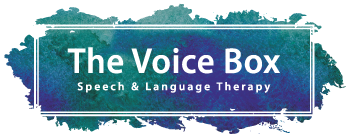Stuttering
Break through the barriers of stuttering
Regain the confidence to speak up
Find your voice and unleash your potential
I am deeply passionate about providing unwavering support, guidance, and education to adults who stutter. I recognize and respect the unique nature of each individual’s journey, which is why I place great importance on starting with a thorough, extensive, and detailed assessment. By gaining a comprehensive understanding of your experiences from childhood to the present day, I can develop a customized therapy program tailored specifically to your needs. My goal is to help you establish a healthy and empowering relationship with communication, enabling you to navigate your personal and professional life with confidence and fluency. Throughout our therapeutic journey, I am committed to providing an understanding and judgement-free environment where you feel heard, valued, and supported every step of the way.
What is Stuttering?
Stuttering is a speech disorder characterized by disruptions in the normal flow and rhythm of speech. Individuals who stutter experience difficulty in producing fluent and smooth speech. They may exhibit repetitions of sounds, syllables, or words, prolongations of sounds, or blocking, which is the inability to initiate or complete a word. Stuttering can also be accompanied by physical tension or struggle behaviors.
Stuttering is not caused by nervousness, anxiety, or a lack of intelligence. It is believed to have various underlying factors, including genetic predisposition, neurological differences, and environmental influences. While the exact cause is not fully understood, speech therapy plays a crucial role in helping individuals who stutter improve their communication skills.
Speech Therapy for Stuttering
Through speech therapy, individuals who stutter can learn techniques to manage and reduce stuttering, enhance their fluency, and develop strategies to cope with challenging speaking situations. Therapy may involve techniques such as controlled breathing, slowing down speech rate, employing gentle onset of sounds, and promoting relaxed vocal production. The goal is to improve overall communication effectiveness and foster confidence in expressing oneself.
Cognitive-Behavioral Therapy (CBT) is an approach used to help people who stutter by addressing the emotional and psychological aspects associated with their stuttering. CBT aims to change unhelpful thoughts, beliefs, and behaviors related to stuttering and promote acceptance and self-compassion.
In the context of stuttering, CBT helps individuals challenge negative thoughts and beliefs they may hold about their stuttering, such as feeling ashamed or believing that stuttering makes them inadequate or less worthy. Through therapy, they learn to reframe these thoughts and develop more realistic and positive beliefs about their stuttering.
CBT also focuses on modifying avoidance behaviors and reducing anxiety related to stuttering. By gradually exposing individuals to speaking situations that may trigger anxiety, they learn to tolerate and manage their fears more effectively. They practice engaging in speech despite the presence of stuttering, gradually realizing that stuttering does not define their worth or ability to communicate.
Additionally, CBT helps individuals develop coping strategies to handle social reactions or negative experiences related to their stuttering. They learn assertiveness skills, effective communication techniques, and strategies for self-advocacy.
Overall, CBT provides a supportive and empowering environment for individuals who stutter to develop a more accepting and positive mindset about their speech. It helps them recognize that stuttering is a part of their unique communication style and that it is okay to stutter. By fostering self-acceptance and reducing the emotional impact of stuttering, individuals can experience increased confidence and improved overall well-being.





